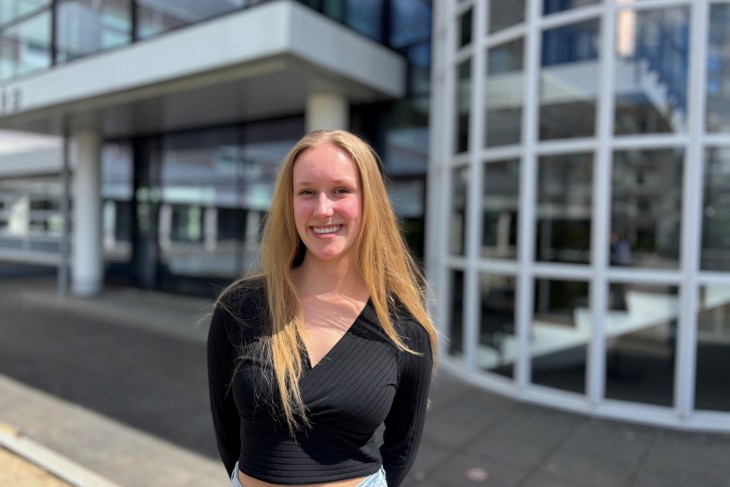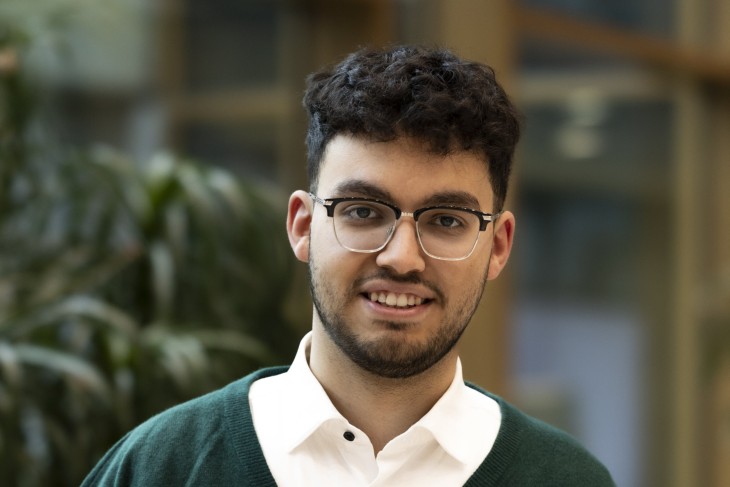“Following my Bachelor’s in Advanced Technology at the University of Twente, which covered physics, chemistry, engineering, electronics, and even business, I realised I enjoy exploring various domains rather than focusing narrowly on one. So instead of specialising in a certain discipline like physics, chemistry, or maths, I decided to specialise in a topic: sustainability.
What is Sustainable Energy Technology?
The Master’s in Sustainable Energy Technology at the University of Twente touches upon a variety of subjects, such as chemical, electrical, process, and mechanical engineering, as well as economics, business development, and supply chain management. You get a complete picture of how to tackle sustainability challenges.
You are given a societal problem and the freedom to decide how to address it. Take, for example, designing a distillation column, which is equipment used to separate liquid mixtures into their individual parts. You might focus on the technical aspects to make it work faster, but you must also consider how to reduce its energy consumption. This is crucial because distillation columns are often used in industries that consume a lot of energy, such as chemical processing. So, how can you lower its environmental footprint while also keeping the costs low?
I love that we learn by doing. One notable project involved designing a solution to reduce the carbon footprint of a snack manufacturing company in the Netherlands. Together with my project team, we visited their factory and saw the actual machinery used to fry chips and popcorn. Then, we proposed a heat recuperation system that captures and reuses heat from the gas burners, significantly cutting their energy use and costs. In our technical bubble at university, we often focus on creating complex designs. However, working with this company taught me that a simple, straightforward solution could be immensely valuable to a company, especially to employees who might not have the same technical background.
Green Hub Twente
Making our university more sustainable is where I devote some of my free time as a member of Green Hub Twente. We recently completed a project in which we contributed to waste separation in labs. Labs used to dispose of all waste together, including plastics and other recyclables, and we successfully implemented separate waste bins for plastics and proper waste management practices.
In another project, we addressed the high energy consumption of -80-degree freezers used for storing cells and DNA. By adjusting the freezer settings from -80 to -70 degrees Celsius, we cut energy consumption by 30%, which is like what a small Dutch household uses in a year. We persuaded research groups to make these adjustments and even convinced them to stop using one freezer altogether, saving energy without affecting their research. Seeing such practical changes and their big environmental impact gives me a lot of satisfaction. Moving forward, I want to continue making similar meaningful contributions towards a more sustainable way of living.”



